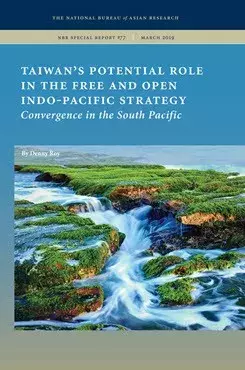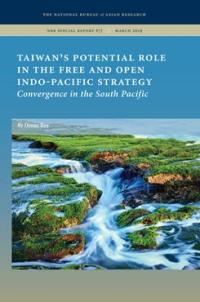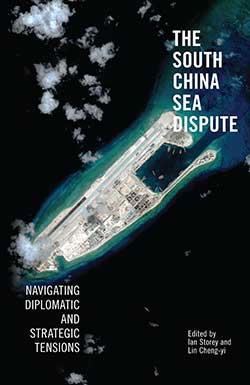Error message

OFFICE/DEPARTMENT
The rise of China is perhaps the most consequential regional security issue of this century. A struggle for regional leadership between China and the United States is emerging, repeating a historical pattern that often results in military conflict. A stronger China is challenging important aspects of the long-established Pax Americana, including the forward deployment of US forces, the US alliance system, and US involvement in regional issues.

Most governments in the region perceive some degree of strategic peril in a militarily strong China with an assertive foreign policy. Also in question is the continued viability of certain accepted international norms that the Chinese government does not support.
As China becomes stronger, the Chinese government appears to be more ambitious in its efforts to control its surroundings. The Chinese may believe that they are defending legitimate interests, but much of the region perceives some Chinese policies as overly assertive and bullying. China sees itself as the historical leader of the region returning to its rightful place after a period of weakness and mistreatment. At the same time, many Asia-Pacific countries have concerns about China's rise because of their histories of conflict with China or Chinese domination.
Some international forces work to restrain China from aggressive behavior. Since China is thriving by participating in the global economy and in multilateral institutions, there is little incentive for Beijing to overthrow the international system. The Chinese are also keen to avoid frightening other states into forming an anti-China defensive coalition. These pacifying forces are ineffective when it comes to the issues about which Beijing is especially sensitive, however: the legitimacy of the Chinese Communist Party government, the demand that the world treat China with proper respect, and China’s entitlement to a sphere of influence on its periphery.
East-West Center Senior Fellow Denny Roy serves as a source of expertise for media commentary and briefings for visitors, many of whom have questions on US policy toward Asia, Chinese foreign and security policy, US alliances in the region, and the North Korea crisis. During this period, he presented 20 briefings, lectures, keynote speeches, and panel presentations, including one in Tokyo. Roy frequently writes policy-relevant analytical articles in his areas of expertise.
Dr. Roy has recently published a report on Taiwan's role in the South Pacific for the National Bureau of Asian Research. Taiwan’s Potential Role in the Free and Open Indo-Pacific Strategy: Convergence in the South Pacific examines the role of the Pacific Islands in Taiwan’s grand strategy and argues that Taiwan’s struggle to maintain formal diplomatic relations with Pacific Island nations dovetails with the United States’ reformulated Indo-Pacific strategy, even if Washington has yet to articulate a clear plan for coordinating activities in the South Pacific with Taipei.
Managing Tensions in the South China Sea
One specific, immediate challenge associated with the rise of China is managing tensions related to disputed claims in the South China Sea. Sovereign rights over the water column, seabed, and island-like features of the South China Sea are disputed between China, Vietnam, the Philippines, Malaysia, Brunei, and Taiwan. The value of the resources at stake (fishing grounds and extractable hydrocarbons) and the tendency of territorial issues to arouse nationalist passions make a compromise settlement difficult. Furthermore, this issue has become one of the first test cases of how China as a great power will work out disputes with its smaller neighbors.
A collaborative research project aims to assess the prospects for peace or conflict in the South China Sea as the rise of China's relative military and economic capabilities emboldens the Chinese to take more assertive measures in defense of the extraordinarily expansive Chinese claims. At the same time, the smaller claimants are scrambling to strengthen their own claims both because of and in spite of the expectation that China's ability to project power into the South China Sea will soon be unmatchable.
An additional complicating factor is the involvement of the United States. Washington takes no official position on the territorial disputes but clashes with China over the right to conduct military surveillance from within China's exclusive economic zone and has intervened diplomatically to prevent China from dominating negotiations with its neighbors. This has added a layer of US-China strategic rivalry over the South China Sea issue.
The East-West Center has collaborated on this research with the Institute for European and American Studies, Academia Sinica, Taiwan. Project results are presented in an edited book on the strategic implications of the South China Sea disputes: Ian Storey and Cheng-yi Lin, eds. (2016). The South China Sea dispute: Navigating diplomatic and strategic tensions. Singapore: Institute of Southeast Asian Studies.

The book comprises papers presented at a workshop held in January 2012 at Academia Sinica, Taiwan. Contributors to the book are:
- Ian Storey, Senior Fellow, Institute of Southeast Asian Studies
- Cheng-yi Lin, Research Fellow, Institute for European and American Studies, Academia Sinica, Taiwan
- Li Mingjiang, Assistant Professor, Nanyang Technological University
- Anne Hsiu-an Hsiao, Associate Research Fellow, Institute of International Relations, National Chengchi University
- Alice D. Ba, Associate Professor, University of Delaware
- Aileen S.P. Baviera, Professor, Asian Center, University of the Philippine
- Hoang Anh Tuan, Vietnam's Ambassador to the Republic of Indonesia
- Elina Noor, Assistant Director, Institute of Strategic and International Studies, Malaysia
- Denny Roy, Senior Fellow and Supeervisor of the POSCO Fellowship Program, EAst-West Center
- Yann-Huei Song, Research Fellow, Institute of European and American Studies, Academia Sinica
- Yoichiro Sato, Professor, Ritsumeikan Asia Pacific University
- Yann-Huei Song, Research Fellow, Institute of European and American Studies, Academia Sinica
Selected publications
Roy, Denny (2019). Assertive China: Irredentism or expansionism? Survival: Global Politics and Strategy, 61(1): 51–74.
Roy, Denny (2019). Taiwan's potential role in the free and open Indo-Pacific strategy: Convergence in the South Pacific. Seattle, WA: National Bureau of Asian Research.
Roy, Denny (2019). US strategy toward China: Three key questions for policymakers. PacNet30. Honolulu, HI: Pacific Forum.
Roy, Denny (2018). America’s deep rationale for PACOM. In T. Motohiro, ed. US Pacific Command and Asia: Security in the Indo-Pacific. Tokyo: Chikura Publishing Company.
Roy, Denny (2018). PACOM and the Pentagon. In Tsuchiya T. Motohiro, ed. US Pacific Command and Asia: Security in the Indo-Pacific. Tokyo: Chikura Publishing Company.
Roy, Denny (2018). We will soon miss the Deng era. Dong Hwa Journal of Humanities and Social Science [National Dong Hwa University, Taiwan]. 17.
Roy, Denny (2017). Prospects for Taiwan maintaining its autonomy under Chinese pressure. Asian Survey. 57(6): 1135–58.
Roy, Denny (2017). Misunderstanding North Korea. AsiaPacific Issues No. 133. Honolulu: East-West Center.
Roy, Denny (2016). Meeting the Chinese challenge to the regional order. Asian Politics & Policy, 8(1): 193–206.
Roy, Denny (2015). China and America: The disputes also matter. The National Interest, 30 Aug.
Roy, Denny (2015). China Is playing offense, not defense, in the South China Sea. The Diplomat, 4 June.
Roy, Denny (2015). China wins the gray zone by default. PacNet No. 60. Honolulu: Pacific Forum Center for Strategic and International Studies; reprinted as China's strategy to undermine the U.S. in Asia: Win in the 'gray zone,' The National Interest, 18 Sept.
Roy, Denny (2015). Collision course: The looming U.S.-China showdown over Taiwan. The National Interest online, 21 Feb.
Roy, Denny (2015). New PRC South China Sea bases no excuse to ‘relax.’ The Diplomat, 30 Apr..
Roy, Denny (2015). Sorry, China: You can’t have it both ways on North Korea. The National Interest blog, 28 Jan.
Roy, Denny (2015). The impossible price of a U.S.-China grand bargain: Dumping Taiwan. The National Interest, 24 June; reprinted as Trading away Taiwan is no bargain for the USA. PacNet No. 37. Honolulu: Pacific Forum Center for Strategic and International Studies, 2015.
Roy, Denny (2015). Xi Jinping's two-pronged strategy too ambitious? The Straits Times (Singapore), 22June.
Roy, Denny (2014). Don’t overstate Japan 'danger.' Japan Times, 17 Oct.
Roy, Denny (2014). Mainland China’s contradictory security strategy. Defense Security Brief [Taiwan], 4(2): 7-10.
Roy, Denny (2014). Taiwan: A status upgrade is now affordable. The Diplomat, 3 Oct.
Roy, Denny (2014). U.S.-China relations and the western Pacific. The Diplomat, 16 Jan.
Roy, Denny, with Brad Glosserman (2014). A new model of (old) leadership in China. PacNet No. 59. Honolulu: Pacific Forum Center for Strategic and International Studies.
Roy, Denny (2013). Return of the dragon: Rising China and regional security. New York: Columbia University Press.
Roy, Denny (2013). The problem with premature appeasement. Survival, 55(3): 183-202.
Storey, Ian, and Cheng-yi Lin, eds. (2016). The South China Sea dispute: Navigating diplomatic and strategic tensions. Singapore: Institute of Southeast Asian Studies.
The rise of China is perhaps the most consequential regional security issue of this century. A struggle for regional leadership between China and the United States is emerging, repeating a historical pattern that often results in military conflict. A stronger China is challenging important aspects of the long-established Pax Americana, including the forward deployment of US forces, the US alliance system, and US involvement in regional issues.

Most governments in the region perceive some degree of strategic peril in a militarily strong China with an assertive foreign policy. Also in question is the continued viability of certain accepted international norms that the Chinese government does not support.
As China becomes stronger, the Chinese government appears to be more ambitious in its efforts to control its surroundings. The Chinese may believe that they are defending legitimate interests, but much of the region perceives some Chinese policies as overly assertive and bullying. China sees itself as the historical leader of the region returning to its rightful place after a period of weakness and mistreatment. At the same time, many Asia-Pacific countries have concerns about China's rise because of their histories of conflict with China or Chinese domination.
Some international forces work to restrain China from aggressive behavior. Since China is thriving by participating in the global economy and in multilateral institutions, there is little incentive for Beijing to overthrow the international system. The Chinese are also keen to avoid frightening other states into forming an anti-China defensive coalition. These pacifying forces are ineffective when it comes to the issues about which Beijing is especially sensitive, however: the legitimacy of the Chinese Communist Party government, the demand that the world treat China with proper respect, and China’s entitlement to a sphere of influence on its periphery.
East-West Center Senior Fellow Denny Roy serves as a source of expertise for media commentary and briefings for visitors, many of whom have questions on US policy toward Asia, Chinese foreign and security policy, US alliances in the region, and the North Korea crisis. During this period, he presented 20 briefings, lectures, keynote speeches, and panel presentations, including one in Tokyo. Roy frequently writes policy-relevant analytical articles in his areas of expertise.
Dr. Roy has recently published a report on Taiwan's role in the South Pacific for the National Bureau of Asian Research. Taiwan’s Potential Role in the Free and Open Indo-Pacific Strategy: Convergence in the South Pacific examines the role of the Pacific Islands in Taiwan’s grand strategy and argues that Taiwan’s struggle to maintain formal diplomatic relations with Pacific Island nations dovetails with the United States’ reformulated Indo-Pacific strategy, even if Washington has yet to articulate a clear plan for coordinating activities in the South Pacific with Taipei.
Managing Tensions in the South China Sea
One specific, immediate challenge associated with the rise of China is managing tensions related to disputed claims in the South China Sea. Sovereign rights over the water column, seabed, and island-like features of the South China Sea are disputed between China, Vietnam, the Philippines, Malaysia, Brunei, and Taiwan. The value of the resources at stake (fishing grounds and extractable hydrocarbons) and the tendency of territorial issues to arouse nationalist passions make a compromise settlement difficult. Furthermore, this issue has become one of the first test cases of how China as a great power will work out disputes with its smaller neighbors.
A collaborative research project aims to assess the prospects for peace or conflict in the South China Sea as the rise of China's relative military and economic capabilities emboldens the Chinese to take more assertive measures in defense of the extraordinarily expansive Chinese claims. At the same time, the smaller claimants are scrambling to strengthen their own claims both because of and in spite of the expectation that China's ability to project power into the South China Sea will soon be unmatchable.
An additional complicating factor is the involvement of the United States. Washington takes no official position on the territorial disputes but clashes with China over the right to conduct military surveillance from within China's exclusive economic zone and has intervened diplomatically to prevent China from dominating negotiations with its neighbors. This has added a layer of US-China strategic rivalry over the South China Sea issue.
The East-West Center has collaborated on this research with the Institute for European and American Studies, Academia Sinica, Taiwan. Project results are presented in an edited book on the strategic implications of the South China Sea disputes: Ian Storey and Cheng-yi Lin, eds. (2016). The South China Sea dispute: Navigating diplomatic and strategic tensions. Singapore: Institute of Southeast Asian Studies.

The book comprises papers presented at a workshop held in January 2012 at Academia Sinica, Taiwan. Contributors to the book are:
- Ian Storey, Senior Fellow, Institute of Southeast Asian Studies
- Cheng-yi Lin, Research Fellow, Institute for European and American Studies, Academia Sinica, Taiwan
- Li Mingjiang, Assistant Professor, Nanyang Technological University
- Anne Hsiu-an Hsiao, Associate Research Fellow, Institute of International Relations, National Chengchi University
- Alice D. Ba, Associate Professor, University of Delaware
- Aileen S.P. Baviera, Professor, Asian Center, University of the Philippine
- Hoang Anh Tuan, Vietnam's Ambassador to the Republic of Indonesia
- Elina Noor, Assistant Director, Institute of Strategic and International Studies, Malaysia
- Denny Roy, Senior Fellow and Supeervisor of the POSCO Fellowship Program, EAst-West Center
- Yann-Huei Song, Research Fellow, Institute of European and American Studies, Academia Sinica
- Yoichiro Sato, Professor, Ritsumeikan Asia Pacific University
- Yann-Huei Song, Research Fellow, Institute of European and American Studies, Academia Sinica
Selected publications
Roy, Denny (2019). Assertive China: Irredentism or expansionism? Survival: Global Politics and Strategy, 61(1): 51–74.
Roy, Denny (2019). Taiwan's potential role in the free and open Indo-Pacific strategy: Convergence in the South Pacific. Seattle, WA: National Bureau of Asian Research.
Roy, Denny (2019). US strategy toward China: Three key questions for policymakers. PacNet30. Honolulu, HI: Pacific Forum.
Roy, Denny (2018). America’s deep rationale for PACOM. In T. Motohiro, ed. US Pacific Command and Asia: Security in the Indo-Pacific. Tokyo: Chikura Publishing Company.
Roy, Denny (2018). PACOM and the Pentagon. In Tsuchiya T. Motohiro, ed. US Pacific Command and Asia: Security in the Indo-Pacific. Tokyo: Chikura Publishing Company.
Roy, Denny (2018). We will soon miss the Deng era. Dong Hwa Journal of Humanities and Social Science [National Dong Hwa University, Taiwan]. 17.
Roy, Denny (2017). Prospects for Taiwan maintaining its autonomy under Chinese pressure. Asian Survey. 57(6): 1135–58.
Roy, Denny (2017). Misunderstanding North Korea. AsiaPacific Issues No. 133. Honolulu: East-West Center.
Roy, Denny (2016). Meeting the Chinese challenge to the regional order. Asian Politics & Policy, 8(1): 193–206.
Roy, Denny (2015). China and America: The disputes also matter. The National Interest, 30 Aug.
Roy, Denny (2015). China Is playing offense, not defense, in the South China Sea. The Diplomat, 4 June.
Roy, Denny (2015). China wins the gray zone by default. PacNet No. 60. Honolulu: Pacific Forum Center for Strategic and International Studies; reprinted as China's strategy to undermine the U.S. in Asia: Win in the 'gray zone,' The National Interest, 18 Sept.
Roy, Denny (2015). Collision course: The looming U.S.-China showdown over Taiwan. The National Interest online, 21 Feb.
Roy, Denny (2015). New PRC South China Sea bases no excuse to ‘relax.’ The Diplomat, 30 Apr..
Roy, Denny (2015). Sorry, China: You can’t have it both ways on North Korea. The National Interest blog, 28 Jan.
Roy, Denny (2015). The impossible price of a U.S.-China grand bargain: Dumping Taiwan. The National Interest, 24 June; reprinted as Trading away Taiwan is no bargain for the USA. PacNet No. 37. Honolulu: Pacific Forum Center for Strategic and International Studies, 2015.
Roy, Denny (2015). Xi Jinping's two-pronged strategy too ambitious? The Straits Times (Singapore), 22June.
Roy, Denny (2014). Don’t overstate Japan 'danger.' Japan Times, 17 Oct.
Roy, Denny (2014). Mainland China’s contradictory security strategy. Defense Security Brief [Taiwan], 4(2): 7-10.
Roy, Denny (2014). Taiwan: A status upgrade is now affordable. The Diplomat, 3 Oct.
Roy, Denny (2014). U.S.-China relations and the western Pacific. The Diplomat, 16 Jan.
Roy, Denny, with Brad Glosserman (2014). A new model of (old) leadership in China. PacNet No. 59. Honolulu: Pacific Forum Center for Strategic and International Studies.
Roy, Denny (2013). Return of the dragon: Rising China and regional security. New York: Columbia University Press.
Roy, Denny (2013). The problem with premature appeasement. Survival, 55(3): 183-202.
Storey, Ian, and Cheng-yi Lin, eds. (2016). The South China Sea dispute: Navigating diplomatic and strategic tensions. Singapore: Institute of Southeast Asian Studies.

